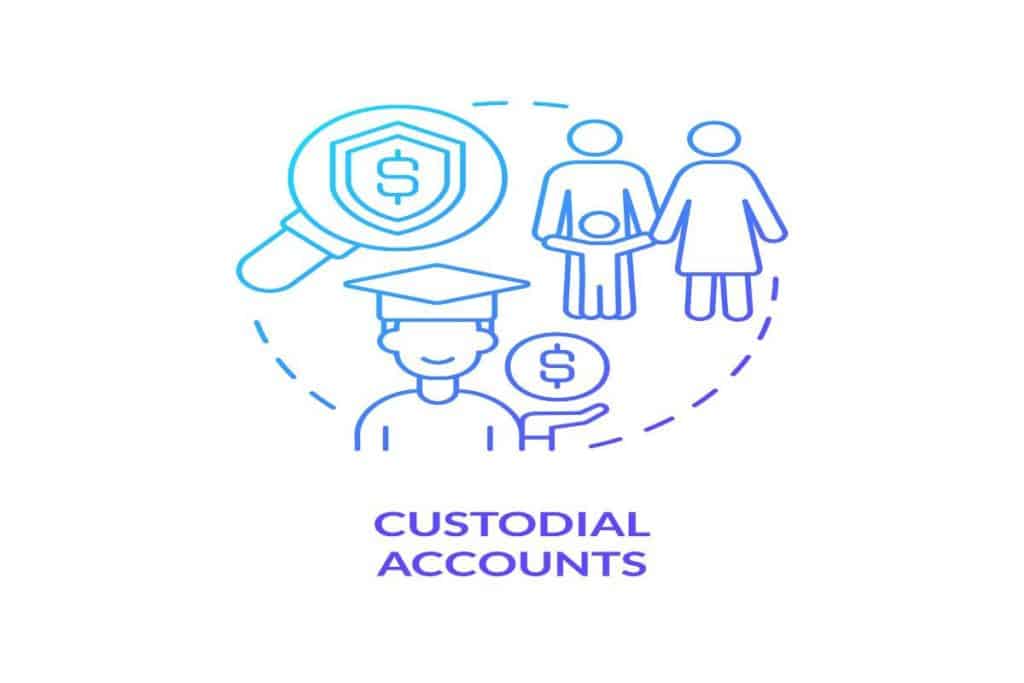There are lots of things you should know about custodial accounts (UTMA/UGMA), and plenty of reasons to speak with a knowledgeable estate and probate lawyer about them.
But starting with a basic understanding can be the best place to start. Which is why we are going to present 3 facts you should know about custodial accounts.
What Is a Custodial Account?
As part of a comprehensive estate plan, saving for a child’s future is one important aspect to think about.
Saving for a child’s future or future education can be accomplished in a number of ways. However, one tool that works well with estate planning is the use of custodial accounts.
There are generally two types of custodial accounts: those created under the Uniform Gift to Minors Act (UGMA) and those created under the Uniform Transfers to Minors Act (UTMA). The laws of the state you live in will determine which type of custodial accounts (UGMA or UTMA) are available to you.
For example, in Florida, custodial accounts come under the purview of Florida’s Uniform Transfers to Minors Act (UTMA).
Aside from the rather obvious difference—a gift under the UTGA is a gift, while contributions to a fund made under the UTMA is a transfer to the minor— there are not extensive differences between the two types of custodial accounts. Nevertheless, to determine which tool best meets your needs and what is available to you, please consult with an experienced estate planning lawyer.
With custodial accounts, while the person who sets up the account (i.e., the parent or grandparent) is not only the person who funds the account with money or other assets but also the person who manages the account, he or she is not the owner of the account. Instead, he or she is considered as the custodian of the account. The named beneficiary (i.e., the minor for whose benefit the account is created) is the owner of the account. In other words, the money or assets in the UTMA account belong to the beneficiary (i.e., the child). The child will not be able to assert control over the money in the account until he or she comes of age (in Florida, that can be as old as 25, however in most states it is 18). Nevertheless, the money belongs to the child, not to the person who set up the account.
Custodial accounts can be a great way to save for a child’s future. However, there are several things that you should know about them before you set up a custodial account.
The following are only 3 factors you should know about custodial accounts.
-
You cannot protect your assets from your creditors with a custodial account.
Custodial accounts are set up for the benefit of a minor child (children). Indeed, in Florida, a UTMA account is the most common way of gifting assets to a minor.
And the main point is that the money belongs to the minor.
Once the account is established, even though the child may not get the money until he or she is 21 or 25 in Florida, the assets at all times belong to the child. The custodian may, of course, use the money in the account for the benefit of the child until his/her majority, but the money must be truly used for and tied to the benefit of the child.
Because of this, a judgment against the custodial parent cannot be satisfied from the UTMA account. Further, any attempt to create a Florida UTMA account for the purposes of protecting a parent’s assets from his/her creditors can be challenged as a fraudulent transfer.
-
Your child does not have to use the money for college—even if the UTMA is intended as a college savings account.
As an extension of the first point above (that the money in the account belongs to the child) you should be aware that even if the money in the account is intended for the child to use to pay for a college education, when he/she reaches maturity, he can use the money however he likes.
So, that means if the money was placed in the account with the purpose of paying for the beneficiary’s college education but they ultimately use it to buy a top-notch dressage horse when they reach maturity and get the money, there is nothing (legally) that you as the parent/grandparent can do about it.
-
The beneficiary can gain control over the money at the age of 21 even if the UTMA account designates age 25 for final distribution.
Unlike most states, in Florida, you can delay the child’s receiving the UTMA account until the age of 25. In most states, the age is 18 or 21.
However, even with that stipulation, once the beneficiary reaches the age of 21, he or she has the “absolute right to compel immediate distribution of the entire custodial property.”
Custodial accounts can be a great way to save for a child’s future. But you must know what is allowed, and what the benefits and potential detriments of using a custodial account for savings are. To understand how they can work for you and with your estate plan in Florida, contact our estate planning lawyers today.
Estate Plans That Provide Peace of Mind
At the SJF Law Group, you get more than just an estate plan: you get peace of mind. We work hard to ensure that your wishes will be followed, and your loved ones taken care of when you are gone. Connect with us on Facebook or Instagram or email us at: info@estateandprobatelawyer.com today.


